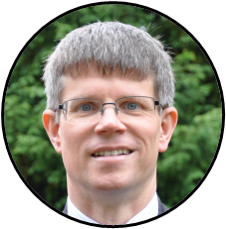System and software safety in electronic systems is becoming increasingly central in many industries. Industries are heading towards more and more connected and advanced software-intensive systems. Many organization face the same kind of challenges thus sharing experience is essential.
The conference is organized by Addalot and ICES (KTH) and has become the central meeting place for Scandinavian safety experts from different industries. It is an opportunity to share experiences and make new contacts. There will be an overview day, this year with four keynote speeches. The second day includes parallel sessions with in-depth workshops and tutorials about different challenges, techniques, standards and methods. As for the previous years, we anticipate a healthy mixture of participants and presentations from different industries and academia
Do you want to meet up with the safety experts of Scandinavia?
You are invited to register. Early bird has been extended to September 15, 2019
Please check past conferences for previous conference details
By Dr David Pumfrey, York University
Exactly 20 years ago, Dr Pumfrey published his thesis – “The Principled Design of Computer System Safety Analyses”. In the thesis, he proposed a set of principles for safety analysis methods. In this talk, Dr Pumfrey will reconsider his thesis. He will look at whether research and developments in the industry have validated these ideas, reflect on how progress has been and conclude the talk by reformulating some of the principles he proposed 20 years ago as more general statements of challenges that he believe the safety critical systems and software industries must still address over the coming decade.
 Dr David Pumfrey is a Lecturer in Safety Critical Systems Engineering in the Department of Computer Science at the University of York, UK. He began his career in the automotive industry, developing and assessing safety-critical software for in-vehicle and manufacturing control applications. David has more than 20 years’ experience in combined research and teaching in a very industry-focused lectureship, spending much of his time on-site with companies working in safety-critical sectors including railways, aviation, healthcare and the automotive industry. He has also been independent quality auditor and examiner for System Safety courses provided to the UK Ministry of Defence.
Dr David Pumfrey is a Lecturer in Safety Critical Systems Engineering in the Department of Computer Science at the University of York, UK. He began his career in the automotive industry, developing and assessing safety-critical software for in-vehicle and manufacturing control applications. David has more than 20 years’ experience in combined research and teaching in a very industry-focused lectureship, spending much of his time on-site with companies working in safety-critical sectors including railways, aviation, healthcare and the automotive industry. He has also been independent quality auditor and examiner for System Safety courses provided to the UK Ministry of Defence.
By Nick McDonald, Trinity College Dublin
The current technology revolution is quite unlike the last. However, experience is often of opacity of real system functioning, new, often hidden, interdependencies, unfamiliar roles and pressures, and/or an overwhelming torrent of information. Challenges can occur at different levels e.g.: unanticipated consequences of a technical fix; lack of transparency of operational risk; chronic increasing demand, safety and environmental impact to meet stringent new targets. While regulation and governance of risk and safety increasingly aspire to be systemic, proactive, performance and change oriented, it is difficult to get beyond a predominantly compliance framework. Furthermore, system design lacks the capacity to fully project a system-of-systems from a valid operational point of view. Is this an insoluble ‘wicked problem’ due to the intractability of operational complexity, and inherent inability to manage apparently spontaneous processes of social adaptation? On the other hand, maybe these new technologies can themselves create the opportunities to change the ‘rules of the game’ of operational risk governance and ‘system design for operations’ potentially transforming how we manage the system lifecycle.
 Nick McDonald is Adjunct Associate Professor in the School of Psychology in Trinity College Dublin and, until recently, Director of the Centre for Innovative Human Systems and course director for an on-line Master’s program in Managing Risk and System Change. He has many years of research on safety in aviation, road transport, emergency services, manufacturing, construction and health care. Through a series of European collaborative RTD projects, he has pioneered a distinctive systemic approach to design, governance and change in operational systems; he is currently transforming this research into practical and innovative tools and methods for industry and services.
Nick McDonald is Adjunct Associate Professor in the School of Psychology in Trinity College Dublin and, until recently, Director of the Centre for Innovative Human Systems and course director for an on-line Master’s program in Managing Risk and System Change. He has many years of research on safety in aviation, road transport, emergency services, manufacturing, construction and health care. Through a series of European collaborative RTD projects, he has pioneered a distinctive systemic approach to design, governance and change in operational systems; he is currently transforming this research into practical and innovative tools and methods for industry and services.
 Martin Törngren
Professor Mekatronik
KTH/ICES
Martin Törngren
Professor Mekatronik
KTH/ICES
 Hans Hansson
Professor Realtidssystem
Mälardalens Högskola & SICS
Hans Hansson
Professor Realtidssystem
Mälardalens Högskola & SICS
 Miroslaw Staron
Associate Professor
University of Gothenburg
Miroslaw Staron
Associate Professor
University of Gothenburg
 Tor Stålhane
Professor
Norwegian University of Science and Technology
Tor Stålhane
Professor
Norwegian University of Science and Technology
 Fredrik Asplund
Doctor Mekatronik
KTH
Fredrik Asplund
Doctor Mekatronik
KTH
 Kristina Forsberg
Technical Specialist
SAAB
Kristina Forsberg
Technical Specialist
SAAB
 Anna Beckman
Technical Manager
Scania
Anna Beckman
Technical Manager
Scania
 Olof Bridal
Senior Specialist
Volvo Group Trucks Technology
Olof Bridal
Senior Specialist
Volvo Group Trucks Technology
 Peter Sandberg
Chief Architect
Bombardier Transportation
Peter Sandberg
Chief Architect
Bombardier Transportation
 Annika Thilderqvist
Safety Expert
ABB Automation
Annika Thilderqvist
Safety Expert
ABB Automation
 Pontus Ryd
Senior Partner
Solvina
Pontus Ryd
Senior Partner
Solvina
 Jan Jacobson
Head of Section
SP
Jan Jacobson
Head of Section
SP
 Even-André Karlsson
SW Management Consultant
Addalot
Even-André Karlsson
SW Management Consultant
Addalot
 Per Johannessen
System developer
Combitech
Per Johannessen
System developer
Combitech